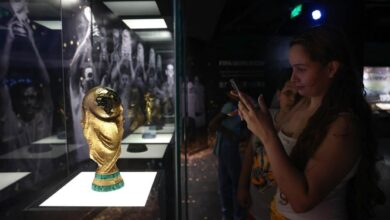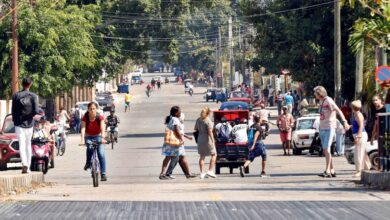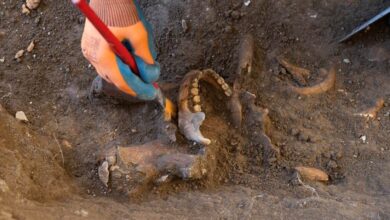Cuba: The changes of private property that you would not expect
With the pre-approval of the new Constitution, which will be debated now in the coming months, private property is the center of attention

The new text of the Cuban Constitution has already begun to be debated in the parliament of the island and one of its major changes, apart from the withdrawal of the word communisms, is the incorporation of private property. This had been incorporated IGNORE INTO the island under the reforms of Raúl Castro. Nevertheless, the socialist property of the whole people on the fundamental means of production is maintained as an essential principle, that is to say that private property will be regulated by the State under new parameters.
Leer en español: Cuba: lo que usted no esperaba de sucediera con la propiedad privada
According to the newspaper El País, on July 17, the Cuban government announced that it will reissue its own account licenses from the month of December. These licenses allow Cubans to acquire in a particular way certain types of businesses such as:
- Restaurants
- Taxis
- Hostels
- Beauty salons
The acquisition of these businesses has as a principle that is done individually, in order to boost the economy of the country and without leaving the socialist bases. In other words, there are basic guidelines to be followed. For example, and as dictated by the current law: “a citizen may have only one business (…) in the case of restaurants, they may not serve more than 50 people.”
For Ernesto Pérez Chang, from Cubanet, with the authorization of self-employment, “many people, with resources to do it, have preferred to move from the state to the private sector and, bypassing some obstacles, have achieved a certain bonanza, but many recognize that this it’s not the common denominator”, considering these restrictions, not every private business can be successful.
Also read: What does the constitutional change in Cuba mean?
According to Cubahora magazine, “Guideline No. 3 approved by the 6th. Congress of the Communist Party says very clearly that ‘in the forms of non-state management will not be allowed the concentration of property, and neither of wealth’ “. Therefore, private property is not as private as it is in the purest sense.
Private property in Cuba seemed to be an illusion. After the Cuban revolution came to power in 1959, the state has had control over the means of production, wages, property and services. However, now with the constitutional changes, a shift is taking place and the rights of individuals are changing.
The reforms carried out by Raúl Castro have allowed property rights and whoever holds them to be transformed. Now, the individual can use their property for different purposes, following the regulations of the law, but where their use now falls entirely on the individual.
This does not mean a transfer of Cuba to capitalism, but it gives Cubans the opportunity to open up the individual economy, so that the national economy can benefit. It becomes a game of demand and supply, where now individuals offer a wider range of products and services, making the economy enjoy more income. Although the property is regulated, the fact of having greater freedom in front of a property also proposes a radical change in the way of conceiving the State.
Private property in the law
In 1960, the urban reform law of Cuba allowed to confiscate all the leased houses, the sale and mortgage was forbidden, and the owners were only owners of their place of residence. In 1984, the General Housing Law authorized the transfer of property, but only to whom the State would allow. That is, a fictitious property because ultimately it was the State who decided who bought, who sold, who rented, or who could be accommodated in a building.
In 2011, with decree 288, the buying and selling of homes was again regulated, empowering citizens to sell and buy, on the condition that it was only for Cubans. Now, the new constitution recognizes “other forms of property such as cooperatives, mixed property and private property,” changing the 1976 constitution where only state property and agricultural cooperatives were recognized.
According to the existing parameters, and included in the constitution that is under debate, private property is recognized if it fulfills a social function. This means that the law regulates private property with a complementary role that benefits the national economy.
Paragraph 176 of the current constitution warns that “the exercise of private property rights is framed in rules that regulate the limits of concentration of property and wealth.” Being more explicit in paragraph 180 regarding the use of property: “only natural persons can constitute different types of entrepreneurship.”
Paragraph 104, can be considered the blockade against private property and the company: “The concentration of property and wealth in natural and legal persons will not be allowed according to the law”, being the determinant to know at what level there is private property, since a Cuban national can use his property under what the law dictates.
LatinAmerican post | Carlos Eduardo Gómez Avella
Translated from “Cuba: lo que usted no esperaba de sucediera con la propiedad privada”





